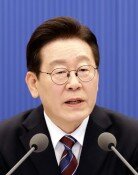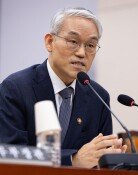[Op-Ed] Myanmars Symbol of Hope
[Op-Ed] Myanmars Symbol of Hope
Posted August. 13, 2009 10:17,
The Third Wave of democracy emerged worldwide in 1987. As a result of the pro-democracy movement, South Korea held its first democratic presidential election in June 1987. Imagine if the opposition party won the election that year, but the military government refused to hand over power. It later confined the opposition leader and put the nation under martial law, ignoring harsh criticism from across the globe and turning a blind eye to its people. Had this unimaginable scenario occurred in South Korea, life for the people would never have changed.
Unfortunately, this sad scenario materialized in Myanmar, which has something in common with South Korea. The Myanmar junta took over in 1962 via a coup detat but a pro-democracy movement emerged in 1988. Unlike South Korea, which went on to establish a democracy, the Myanmar junta ruthlessly suppressed peaceful demonstrations. The country held elections in 1990 and the opposition National League for Democracy led by Aung San Suu Kyi scored a landslide victory. The junta, however, annulled the election results and tightened its grip on power.
Had power been peacefully transferred in Myanmar, Suu Kyi would have become prime minister. Instead, she spent 14 years under house arrest, and just this week, she was sentenced to 18 more months of confinement for violating the terms of her house arrest. The daughter of Myanmar independence hero Aung San, Suu Kyi was a happily married woman with two sons. While studying for her Ph.D. at Oxford University, she returned to Myanmar to tend her mother and witnessed the disastrous situation in her homeland. She has since dedicated herself to Myanmars democratic movement. Due to fears that she will not be allowed to return to the country, she has not left Myanmar since her return. She stayed there in 1991, when she won the Nobel Peace Prize, and in 1999, when her husband died from cancer in Britain.
Myanmar also has something in common with North Korea. The military rules the nation, has close relations with China, and digs large-scale underground tunnels. After suspicion emerged that North Korea transferred nuclear technology to Myanmar, the two nations were even branded the axis of weasels. Considering that Myanmar has a democratic leader, North Korea seems to be better than its ally in high-handed politics. Suu Kyi, who has struggled to let the world know of the pain of her people through elegant and persuasive words, must be released immediately.
Editorial Writer Kim Sun-deok (yuri@donga.com)







